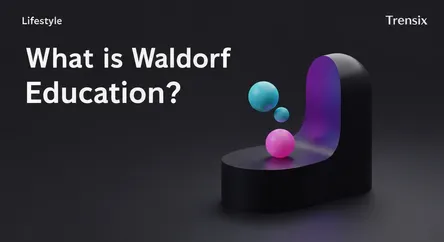Lifestyle
What is Waldorf Education?

Discover Waldorf education, a holistic approach focusing on a child's intellectual, artistic, and practical skills in a creative environment.
What is it?
Waldorf education is a unique pedagogical approach developed by philosopher Rudolf Steiner. It aims to educate the whole child—head, heart, and hands—by integrating academics with arts and practical skills. The curriculum is developmentally appropriate, with a strong emphasis on imagination and play in early childhood. Formal learning is introduced gradually, and subjects are often taught in immersive, multi-week blocks. Technology is intentionally limited, especially in the younger grades, to encourage hands-on experiences, human interaction, and a connection with the natural world. The goal is to cultivate students' intellectual, emotional, and physical capacities in a balanced, unhurried way.
Why is it trending?
Interest in Waldorf education is growing as many parents seek an alternative to the high-stakes testing and increased screen time prevalent in conventional schools. It appeals to those looking for an educational model that prioritizes creativity, critical thinking, and social-emotional well-being over rote memorization. The emphasis on arts, music, nature, and hands-on activities resonates with a desire for a more holistic and enriching childhood. In an increasingly digital world, its 'low-tech' approach is seen as a way to foster deeper engagement, stronger social skills, and a genuine love of learning.
How does it affect people?
Proponents argue that Waldorf education fosters well-rounded, self-motivated individuals with a strong moral compass and a lifelong passion for learning. The integrated curriculum helps students develop flexibility, creativity, and robust problem-solving skills. By nurturing imagination and delaying formal academic pressures, the approach is believed to build inner resilience and strong interpersonal abilities. Graduates are often described as confident and capable, equipped not just with academic knowledge but also with the practical and artistic skills to lead meaningful and purposeful lives in a complex, ever-changing world.